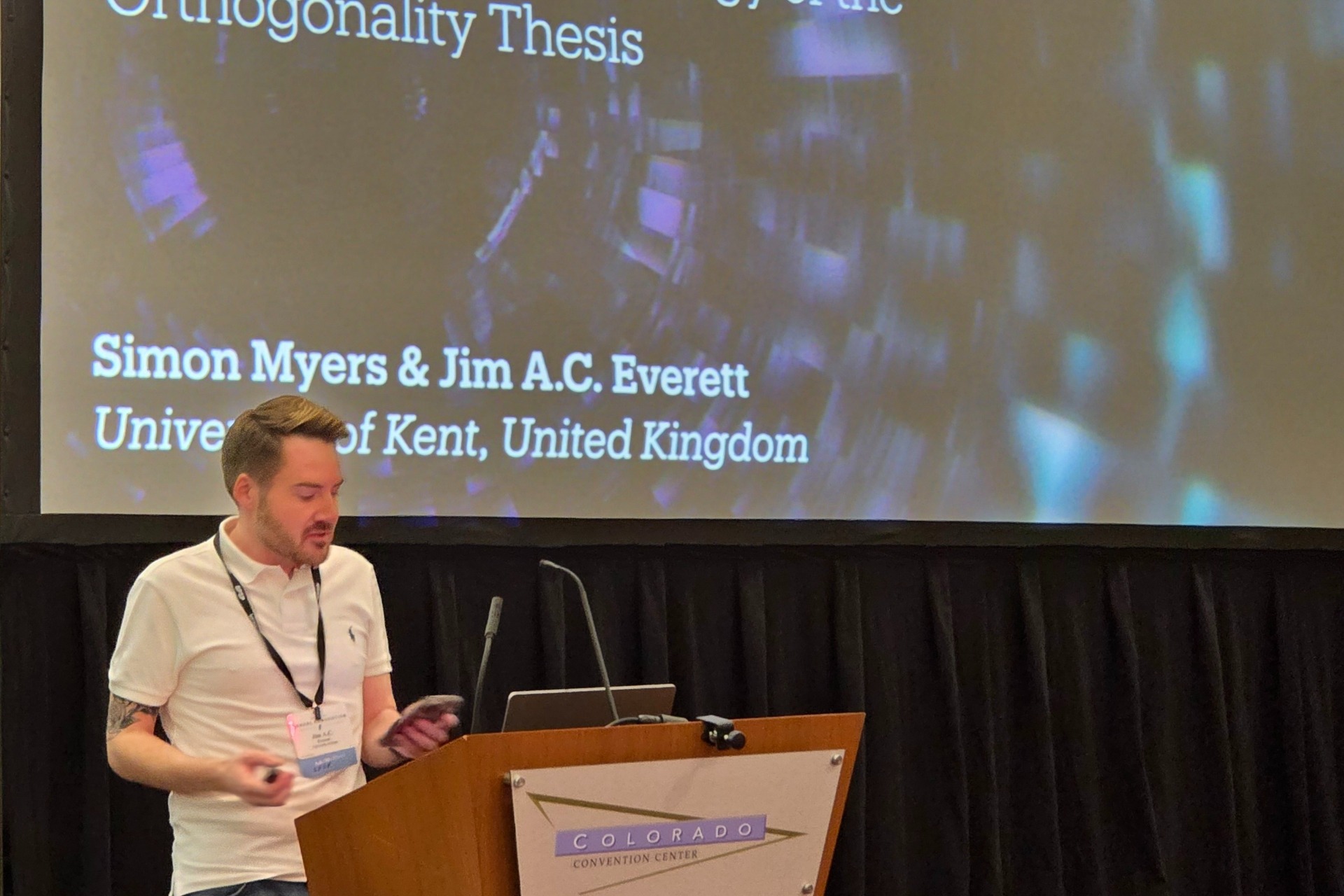
Dr Jim Everett recently attended the recent Society for Personality and Social Psychology (SPSP) conference held in Denver. This year marked a special occasion for Jim as it was his first meeting as a member of the Board of Directors, making him the only European member of the governing body responsible for overseeing the society’s activities.
Jim was an invited speaker at the Moral Psychology pre-conference, opening at a very early 7.40am and presenting ongoing research with Scott Claessens and Pierce Veitch from the team on how people judge others who outsource socio-relational tasks to artificial intelligence (AI) and the implications of person perception.
In addition to this, Jim organised and spoke at a symposium titled “Morality, Machines, and Moral Machines,” a session that brought together diverse voices in the field to examine the intersection of artificial intelligence and moral psychology. Among the other speakers was our project’s co-investigator, Dr Edmond Awad, who presented his cross-cultural research on changing attitudes toward self-driving cars. Jim presented his work with Dr Simon Myers on the “orthogonality thesis” and whether people believe that an “intelligent machine” can also be a “moral machine.” This research pushes the boundaries of social cognition and raises essential ethical and epistemic concerns about how narratives surrounding AI progress can have unintended consequences.
Jim also took the opportunity to meet with colleagues and collaborators, including Anne-Marie Nussberger, Zoe Purcell, and Kathryn Francis, discussing future projects and strengthening ties within the academic community. These interactions provided a platform for strengthening collaborative ties to build on future research in the field of artificial moral advisors and trust in moral machines.